new posts in all blogs
Viewing: Blog Posts Tagged with: 1933, Most Recent at Top [Help]
Results 1 - 9 of 9
How to use this Page
You are viewing the most recent posts tagged with the words: 1933 in the JacketFlap blog reader. What is a tag? Think of a tag as a keyword or category label. Tags can both help you find posts on JacketFlap.com as well as provide an easy way for you to "remember" and classify posts for later recall. Try adding a tag yourself by clicking "Add a tag" below a post's header. Scroll down through the list of Recent Posts in the left column and click on a post title that sounds interesting. You can view all posts from a specific blog by clicking the Blog name in the right column, or you can click a 'More Posts from this Blog' link in any individual post.
Testament of Youth. Vera Brittain. 1933. 688 pages. [Source: Library]
First sentence: When the Great War broke out, it came to me not as a superlative tragedy, but as an interruption of the most exasperating kind to my personal plans.
Premise/plot: In 1933, Vera Brittain published her autobiography, Testament of Youth, which covers the years 1900 to 1925. Much of the book focuses directly on the Great War (aka World War I) and its immediate aftermath. During the war, Vera Brittain left her university studies (Somerville College, Oxford) and became a nurse (V.A.D.). She worked as a nurse in England and abroad. (I believe she nursed in France and Malta.) Many of her friends actively served during the war. And those closest to her--including a brother and a fiance--were killed. She wrote honestly and openly about how brutal and devastating the war was, about how the war changed her and there was no going back after peace was declared.
When the book is not discussing the war, it often turns to education, politics, and social issues. Vera Brittain definitely was a feminist. She had VERY strong opinions on women's rights. But she didn't just speak out and speak up about women. She also was a voice for the poor and working class. She saw a lot of injustice and wanted to change the world.
Vera Brittain loved to be a lecturer or guest-lecturer. She had a LOT to say, and wanted to be HEARD wherever she went. This wasn't always the case. She was unhappy with certain groups--or clubs--that didn't value women's opinions and treat women as intellectual equals.
Also of interest perhaps, Brittain shares her experiences as a writer--her journey to publication and her thoughts on the literary world.
The very last chapter is a relief--after spending so many chapters distancing herself from humanity by focusing on POLITICS and WORLD AFFAIRS--focuses instead on her deep friendships and ultimate marriage. She struggled a lot with the idea of marriage. Can she marry and still be a feminist? Can she marry even though she has every intention of staying a career woman? Can she marry even though children are the very last thing (almost) on her mind? She spent so long speaking out against marriage and traditional roles for women, that she is almost ashamed and embarrassed that she fell in love.
My thoughts: It was REALLY long. Overall, I thought it was slightly uneven. It was at times quite fascinating and compelling, but, then at times it was also quite sluggish and boring. There would be pages that definitely kept me reading and kept me caring. I will say that the movie did a great job condensing the book and capturing the spirit of it. Not that the movie is 100% faithful to the book. (No movie is).
Quotes:
There is still, I think, not enough recognition by teachers of the fact that the desire to think--which is fundamentally a moral problem--but be induced before the power is developed. Most people, whether men or women, wish above all else to be comfortable, and thought is a pre-eminently uncomfortable process; it brings to the individual far more suffering than happiness in a semi-civilized world which still goes to war, still encourages the production of unwanted C3 children by exhausted mothers, and still compels married partners who hate one another to live together in the name of morality. (40)
I am inclined to believe that provincial dances are responsible for more misery than any other commonplace experience. (51)
Most of us have to be self-righteous before we can be righteous. (56)
How curious it seems that letters are so much less vulnerable than their writers! (124)
Even my work-driven uncle at the bank wrote a long letter, enclosing a fragment of philosophy which had recently come to England from the French trenches: "When you are a soldier you are one of two things, either at the front or behind the lines. If you are behind the lines you need not worry. If you are at the front you are one of two things. You are either in a danger zone or in a zone which is not dangerous. If you are in a zone which is not dangerous you need not worry. If you are in a danger zone, you are one of two things; either you are wounded or you are not. If you are not wounded you need not worry. If you are wounded you are one of two things, either seriously wounded or slightly wounded. If you are slightly wounded you need not worry. If you are seriously wounded one of two things is certain--either you get well or you die. If you get well you needn't worry. If you die you cannot worry, so there is no need to worry about anything at all." (306)
It seems to me that the War will make a big division of 'before' and 'after' in the history of the world. (317)
© 2016 Becky Laney of
Becky's Book Reviews
Invincible Louisa: The Story of the Author of Little Women. Cornelia Meigs. 1933/1995. Little, Brown. 256 pages. [Source: Library]
My mom has wanted me to read Invincible Louisa for years. I finally did, and I enjoyed it. Did I love it? Probably not LOVE. But I certainly appreciated it and found it pleasant enough.
Invincible Louisa is a biography of Louisa May Alcott written for children. It reads much like a novel. There is plenty of dialogue; there is plenty of emotion and description. It covers her whole life--from birth to death. Though not equal attention is given to every year, of course!!! Much of the focus is on the whole Alcott family.
Probably half the book focuses on Louisa Alcott "becoming" a writer: how she came to write stories, sketches, poems, novels, etc., how she came to be published, how her works were received by critics and the public. But the book focuses much on her character. (It's not a word you hear a lot about now perhaps. But her values, beliefs, and principles.) So, yes, the book is about her being a writer, but, it is just as much about her being a daughter and sister.
Would I have appreciated Little Women more if I'd read Invincible Louisa as a child? Perhaps. The two books would definitely complement one another.
© 2015 Becky Laney of
Becky's Book Reviews
ABC Bunny. Wanda Gag. 1933/2004. University of Minnesota Press. 40 pages. [Source: Library]
First sentence:
A for Apple, big and red
B for Bunny snug a-bed
C for Crash!
D for Dash!
E for Elsewhere in a flash
F for Frog--he's fat and funny
"Looks like rain," says he to Bunny
Premise/Plot: The plot is minimal. Though simple might be a better word. After Bunny is woken up suddenly, this alphabet book follows his adventures. This one won a Newbery Honor in 1934, so obviously the text was thought worthy! But it is an alphabet book. It is a beautifully illustrated alphabet book no doubt.
My thoughts: I love the black and white illustrations. The illustrations are very detailed. I found them oddly mesmerizing. (I love the illustrations of the porcupine and the squirrel). This is an enjoyable book. I don't remember reading it as a child--that is I don't remember having it read aloud to me as a child. (I have very strong memories of reading Millions of Cats). But this is a lovely book. I wish my library had more of Wanda Gag's books.
© 2015 Becky Laney of
Becky's Book Reviews
The Case of the Velvet Claws. (Perry Mason #1) Erle Stanley Gardner. 1933. Random House. 215 pages. [Source: Bought]
AUTUMN SUN BEAT AGAINST THE WINDOW. Perry Mason sat at the big desk. There was about him the attitude of one who is waiting. His face in repose was like the face of a chess player who is studying the board. That face seldom changed expression. Only the eyes changed expression. He gave the impression of being a thinker and a fighter, a man who could work with infinite patience to jockey an adversary into just the right position, and then finish him with one terrific punch.The Case of the Velvet Claws is the first book in the Perry Mason series by Erle Stanley Gardner. Though it is unlikely that contemporary readers will be unfamiliar with Perry Mason, Paul Drake, and Della Street, this would have been their introduction to the world. There are plenty of establishing details and descriptions about these characters. Especially Perry Mason.
The book opens with a mystery woman seeking Perry Mason's help. She's married, and she was out on the town with another guy. This 'other guy,' whom she claims is just a friend, is a politician, a Congressman, I believe. They were together--at a club, at a restaurant?--when a crime was committed. Neither wants to be known as being there, being a witness, both are seeking to avoid all attention. But she fears that blackmail is certain, almost inevitable. She wants Perry Mason to handle it for her, for them both. The blackmail will come/does come from a tabloid-ish publication with a mystery-secret-owner. It is only after Perry Mason involves himself thus far, that he realizes that this owner is the husband of his client. Murder is inevitable. It is a Perry Mason book, after all. Who will be the victim? Who will be accused? How messy will it get?
I loved this one. I really loved it. It has a very different feel to it in a way. Most of the Perry Mason novels I've read were published a decade or two later. And, of course, I'm most familiar with the television show.
Quotes:
Perry Mason continued to speak, slowly and forcefully, yet without raising his voice. “All right,” he said, “I’m different. I get my business because I fight for it, and because I fight for my clients. People that come to me don’t come to me because they like the looks of my eyes, or the way my office is furnished, or because they’ve known me at a club. They come to me because they need me. They come to me because they want to hire me for what I can do.”
Perry Mason made a gesture with his shoulders. “Why should I care if she makes it easy for me?” he asked. “She’s the one that’s paying for my time. Time is all I’m investing.” Della Street said, slowly: “Are you sure that time is all you’re investing?” “Why not?” “I don’t know,” she said, “the woman’s dangerous. She is just the kind of a little minx who would get you into some sort of a jam and leave you to take it, right on the button.” His face didn’t change expression, but his eyes glinted. “That’s one of the chances I have to take,” he told her. “I can’t expect my clients to be loyal to me. They pay me money. That’s all.” She stared at him with a speculative look that held something of a wistful tenderness. “But you insist on being loyal to your clients, no matter how rotten they are.” “Of course,” he told her. “That’s my duty.”
“To your profession?” “No,” he said slowly, “to myself. I’m a paid gladiator. I fight for my clients. Most clients aren’t square shooters. That’s why they’re clients. They’ve got themselves into trouble. It’s up to me to get them out. I have to shoot square with them. I can’t always expect them to shoot square with me.” “It isn’t fair!” she blazed. “Of course not,” he smiled. “It’s business.”
“When you’re representing clients, Della,” he said, “you can’t pick and choose them. You’ve got to take them as they come. There’s only one rule in this game, and that is that when you do take them, you’ve got to give them all you’ve got.”
© 2015 Becky Laney of
Becky's Book Reviews
Lord Edgware Dies (OR Thirteen at Dinner). Agatha Christie. 1933. 260 pages.
I absolutely LOVE, LOVE, LOVE this Agatha Christie mystery. It stars both Hercule Poirot and Captain Hastings, a combination I find very hard to resist. The mystery begins with an American celebrity--an actress, Jane Wilkinson--asking Poirot for help. She's not asking him to solve a crime, exactly. She's asking him to go to her husband--whom she hates--and ask him if he'll grant her a divorce. After this consultation, she "carelessly" mentions how she wants her husband to die; at one point she even shares just how she would kill her husband. A few take her seriously pointing out to Poirot that Wilkinson is the type of woman who would kill without thinking it wrong. But Poirot likes to make up his own mind, come to his own conclusions about people's characters and motives.
So when a little time later, Lord Edgware is killed, Poirot becomes interested in the case...
This one was a delightful mystery! I just love Agatha Christie! This may be among my favorite Poirot mysteries!!!
Favorite quotes:
"I always find alibis very enjoyable," he remarked. "Whenever I happen to be reading a detective story I sit up and take notice when the alibi comes along." (122)
"Between the deliberate falsehood and the disinterested inaccuracy it is very hard to distinguish sometimes.."
"What do you mean?"
"To deceive deliberately--that is one thing. But to be so sure of your facts, of your ideas and of their essential truth that the details do not matter--that, my friend, is a special characteristic of particularly honest persons." (128)
"The positive witness should always be treated with suspicion, my friend. The uncertain witness who doesn't remember, isn't sure, will think a minute--ah! yes, that's how it was--is infinitely more to be depended upon!"
"Dear me, Poirot," I said. "You upset all my preconceived ideas about witnesses." (129)
"My good friend," he said. "I depend upon you more than you know."
I was confused and delighted by these unexpected words. He had never said anything of the kind to me before. Sometimes, secretly, I had felt slightly hurt. He seemed almost to go out of his way to disparage my mental powers.
Although I did not think his own powers were flagging, I did realize suddenly that perhaps he had come to depend on my aid more than he knew.
"Yes," he said dreamily. "You may not always comprehend just how it is so--but you do often, and often point the way."
I could hardly believe my ears.
"Really, Poirot," I stammered. "I'm awfully glad, I suppose I've learnt a good deal from you one way or another--"
He shook his head.
"Mais non, ce n'est pas ca. You have learnt nothing."
"Oh!" I said, rather taken aback.
"That is as it should be. No human being should learn from another. Each individual should develop his own powers to the uttermost, not try to imitate those of someone else. I do not wish you to be a second and inferior Poirot. I wish you to be the supreme Hastings. In you, Hastings, I find the normal mind almost perfectly illustrated." (133)
"You are like someone who reads the detective story and who starts guessing each of the characters in turn without rhyme or reason." (135)
Read Lord Edgware Dies
- If you enjoy murder mysteries with more than one murder
- If you enjoy Agatha Christie
- If you love Hercule Poirot and Captain Hastings
- If you enjoy vintage, British mysteries
© 2013 Becky Laney of
Becky's Book Reviews
Why Shoot a Butler? Georgette Heyer. 1933. 352 pages.
While I've read plenty by Georgette Heyer, Why Shoot a Butler (1933) was my first mystery novel by Heyer. I definitely enjoyed it! Mr. Amberley, our detective hero, is on the way to visit his aunt, uncle, and cousin. He's lost his way because he followed his cousin Felicity's directions. While he's trying to find his way, he sees a woman on the side of the road. Upon further investigation, he realizes that this woman is standing by a car...a car with a dead body in it. Amberley is convinced of two things: he does NOT like this strange woman, their conversation was, well, awkward to say the least; but, his instinct is telling him that she is innocent of murder...and that if he were to report her being found by the body that she'd be arrested. The police probably wouldn't look hard for the real murderer then.
His visit with the family goes well. And as the murder investigation gets under way, he stays around and does his own investigation. He learns more and more about this woman, Shirley Brown, and her brother. He is on her side even if she doesn't want him on her side or by her side...
I really loved this one and found it very pleasant. Read Why Shoot A Butler
- If you enjoy Georgette Heyer
- If you like British mysteries
- If you like vintage mysteries of the 1930s
- If you like mysteries with a touch of romance
© 2013 Becky Laney of
Becky's Book Reviews
Murder Must Advertise. Dorothy L. Sayers. 1933. Harper & Row. 323 pages.
"And by the way," said Mr. Hankin, arresting Miss Rossiter as she rose to go, "there is a new copy-writer coming in today."
I love and adore Lord Peter Wimsey. I do. Dorothy Sayers' mysteries had me at hello. In fact, after the first one, I knew I just HAD to read the entire series. So in this Lord Peter adventure, he is going undercover to solve a murder. He has been hired as a copy-writer for an advertising agency. The man he is replacing had a horrid accident on the stairs. Was it really an accident? Or did he have some enemies? Did those enemies come from within the agency? Or was he just hanging out with the wrong crowds after hours?
It took more than a few chapters for Lord Peter to reveal himself to readers. For the first third of the novel, readers just know him as the new employee. Yes, this new employee is asking questions here, there, and everywhere. And, of course, I was a little suspicious and a lot hopeful that he would turn out to be Lord Peter.
Did I like this one? Of course!!! It's Lord Peter! What's not to love? I'm not sure it's my favorite or best. But with the exception of one little chapter, I found it satisfying and just about perfect. Lord Peter can definitely make me giddy!
"Truth in advertising is like leaven, which a woman hid in three measures of meal. It proves a suitable quantity of gas, with which to blow out a mass of crude misrepresentation into a form that the public can swallow." (68)
Others in the series:
I still need to read:
- The Nine Tailors (1934)
- Busman's Honeymoon (1937)
- Complete Stories of Lord Peter (1972)
- Thrones, Dominations (Dorothy Sayers and Jill Paton Walsh) (1998)
- A Presumption of Death (Jill Paton Walsh) (2002)
- The Attenbury Emeralds (Jill Paton Walsh) (2010)
© 2011 Becky Laney of
Becky's Book Reviews
Murder on the Orient Express. Agatha Christie. 1933/2006. Black Dog & Leventhal. 272 pages.
It was five o'clock on a winter's morning in Syria. Alongside the platform at Aleppo stood the train grandly designated in railway guides as the Taurus Express. It consisted of a kitchen and a dining car, a sleeping car and two local coaches.Murder on the Orient Express is my second Agatha Christie. It stars Inspector Hercule Poirot. The murder occurs in the middle of a night on a train--as you probably know already. The train becomes snowbound, and it is up to Hercule Poirot, one of the passengers, to solve the crime. (The murderer has to still be on board.) After examining the crime scene for clues, he interviews each of the passengers one by one: Mary Debenham, Colonel Arbuthnot, Hector MacQueen, Antonio Foscarelli, Edward Henry Masterman, Cyrus Hardman, Princess Dragomiroff, Greta Ohlsson, Mrs. Hubbard, Hildegarde Schmidt, Count and Countess Andrenyi. What clues did the murderer leave behind him/her? Which passenger has the greatest motive for wanting M. Ratchett dead?
I really loved this one. It was so compelling, so suspenseful. I loved the way this one was told, loved the way we got to know the suspects. And, of course, I loved Hercule Poirot. I would definitely recommend this one.
"Madame," Poirot waved an airy hand, "detectives have to ask all sorts of questions. For instance, perhaps you will tell me the colour of your dressing gown?"
She stared at him. Then she laughed. "It is corn-coloured chiffon. Is that really important?"
"Very important, Madame."
She asked curiously: "Are you really a detective, then?"
"At your service, Madame."
"I thought there were no detectives on the train when it passed through Jugo-Slavia--not until one got to Italy."
"I am not a Jugo-Slavian detective, Madame. I am an international detective."
"You belong to the League of Nations?"
"I belong to the world, Madame." said Poirot dramatically. He went on: "I work mainly in London. You speak English?" he added in that language. (128)
© 2011 Becky Laney of
Becky's Book Reviews

Steinbeck, John. 1933. To A God Unknown. 186 pages.
Steinbeck seeks the answer to the age-old question, "Can a man love a tree too much?" in his novel To A God Unknown. What? You don't believe me that that is a universal question that everyone is dying to know the answer to? You've never pondered (to yourself or maybe even with a friend) if you could love a tree so much that you begin to worship it?
This novel focuses on the Wayne family. In particular, Joseph Wayne and his brothers. Determined to head west, to settle in California, Joseph disappoints his father, John, and sets out on his own. When Joseph finally arrives, when he finally sets foot on his own land, his own property, he gets a strange feeling. He knows, he feels, that his father has passed. Around the same time, he feels that his father is right there with him, right there watching him, watching the land. He gets the strongest feeling that his father settles into a tree--becomes one with it in a way. So time passes, as it always does, and Joseph convinces his brothers to come and settle near him. To buy adjoining property, to make one large family ranch that they can own all together and settle. And so it begins, at first it's not quite so obvious, the amount of respect, attention, adoration Joseph feels for 'the tree.' But it can't be hidden forever. One brother knows that his brother has lost touch with reality--at least with good Christian faith--when he sees his brother sacrificing wine and food to the tree, leaving offerings under it, sneaking off at night to speak with it. One brother becomes so angry he decides to do the unthinkable....
Does this tree have magical powers? Is Joseph right in assuming that as long as the tree thrives, the ranch will thrive, the family will thrive?
This is one strange book, I'll admit that up front. Joseph is not easily understood. Not by his wife, Elizabeth. Not by his brothers and their wives. Not by his hired hands. Not by the local priest. No, this Joseph is one-of-a-kind. But is he one-of-a-kind crazy? You be the judge!
I don't want to sound too flippant. I think this book has more literary value than I made it sound like in the first paragraph. A lot of symbols, for example. I think it could be discussed and dissected and explored in depth if readers wanted to get every literary drop out of it. I think it builds up on and explores various mythologies and religious symbols. It weaves together a mythology of its own in a way.
Did I like it? Yes and no. It isn't my favorite Steinbeck by any means. I don't think it is his masterpiece. It is his second novel after all. I'm glad I read it. But I'm not going to go out of my way to buy my own copy either.
© Becky Laney of Becky's Book Reviews
If you're reading this post on another site, or another feed, the content has been stolen.




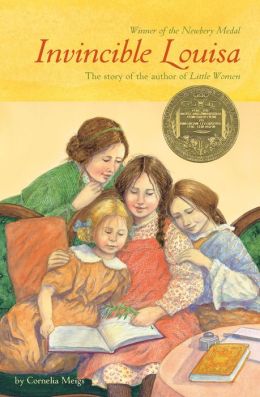
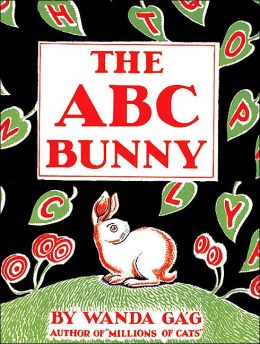

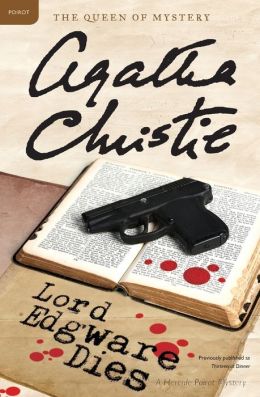

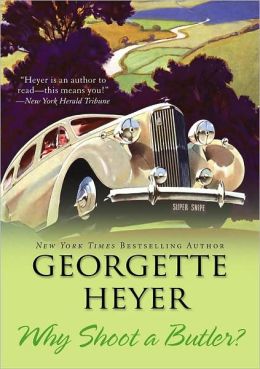
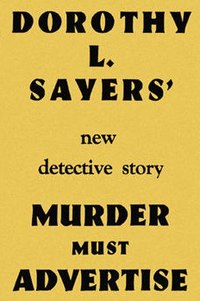
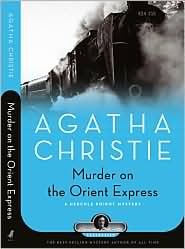

I like this one, but it's not my favorite. I'm not a huge Poirot fan, but Hastings does soften him up for me.
Thanks a lot for this review and especially for the quotes. You ve chosen exactly the ones that I liked. In fact, I ve found you by googling the quote on preconceptions about witnesses :-) I ve been listening to this story on BBC 4 extra and wanted to write down the whole citation. You may like that radio station, too. Greetings from Iva from the Czech Republic